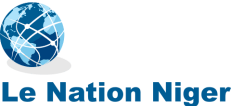When the first consignment of COVID-19 vaccines arrived in Rumbek, the capital of Lakes State in South Sudan, WHO State Polio Officer Dr Jiel Jiel was prepared. In support of the Ministry of Health, and in collaboration with partners, he had been working for weeks to help coordinate the vaccine rollout, using skills gained from working to eradicate polio.
He explains, “For the COVID-19 rollout, the implementing partner turned to us, as they know we have experience in delivering vaccines. The expertise from the top to the bottom of the polio team was utilised.”
In countries where the polio programme has a large footprint, staff provided exceptional support to the initial stages of COVID-19 pandemic response. Since then, polio teams have been assisting with COVID-19 vaccination. Their contributions – including to vaccine logistics, social mobilization, surveillance, training and data management – demonstrate their wide skillset and their ability to help make progress on broader health priorities.
In the African Region, over 500 polio eradication staff assisted with the COVID-19 vaccine rollout in 2021. 39% of that workforce reported spending between 20 – 50% of their time on COVID-19 vaccination efforts, whilst 37% reported dedicating more than 50% of their time. Staff balanced this work with resumed polio vaccination campaigns, which were paused to protect against possible spread of COVID-19 in the early stages of the pandemic.
Their efforts demonstrate the potential for the polio workforce and assets to contribute in the long term to strengthening health systems and building back better. The polio transition process aims to leverage the skills, relationships and reach of the polio workforce in an integrated manner to make progress on a range of health priorities – especially essential immunization, vaccine-preventable disease surveillance and emergency response. The indispensable work of the polio workforce during the COVID-19 pandemic shows that sustaining this network is a good investment for national and global health priorities.
Dr Eshetu Wassie, a National Polio Officer in Ethiopia, explains that the polio workforce is well positioned to assist with reaching health goals.
“The polio experience has helped to bring the WHO workforce together, as COVID-19 required a multisectoral response. This was easier to organize through the polio platform, which was used to bringing partners together.”
Polio staff have undertaken a wide range of tasks. In Nigeria, ensuring the availability of both COVID-19 and polio vaccines has reduced the number of visits families need to make to health facilities, whilst in Cameroon, polio staff have developed communications and advocacy materials to promote COVID-19 vaccine uptake. In many countries, the polio workforce have supported the collection of data on Adverse Events Following Immunization (AEFI) for COVID-19, and have used their experiences in polio eradication to help coordinate effective rollout of the COVID-19 vaccine in different contexts.
In the Eastern Mediterranean Region, the polio workforce in Somalia helped to rollout COVID-19 vaccines throughout 2021. Mohamud Shire, a Senior Polio Eradication Officer in Somalia, explains, “Some of the polio volunteers worked as vaccinators, whilst others were social mobilizers. Regional and District Polio Officers were supervisors of the vaccine rollout. And it helped that communities know and trust us.”
In the South East Asian Region, the integrated immunization and surveillance networks used their experience of introducing new vaccines, including Inactivated Polio Vaccine, to help ensure a smooth rollout of the COVID-19 vaccines. In India and Nepal, support provided by the network has included capacity building, campaign monitoring and contributing to guideline development. In Bangladesh, polio and measles campaign microplans were used to conduct a successful pilot of the COVID-19 vaccine rollout. In Indonesia and Myanmar network support included dissemination of guidelines and cold chain monitoring.
With populations in low-income countries around the world still un- or under-vaccinated against COVID-19, and health systems under severe strain, the continued support of the polio network is likely to be critical to recover from the pandemic. Looking ahead, Dr Jiel Jiel underlines the importance of transitioning and sustaining the polio workforce in polio-free contexts so that they can contribute to health systems recovery, “If we were not present, it would be more difficult for the health system to reach the vaccine coverage that is desired.”
“WHO staff have built up our skills, we have institutional memory and you can rely on us to produce results.”
Source: World Health Organization
